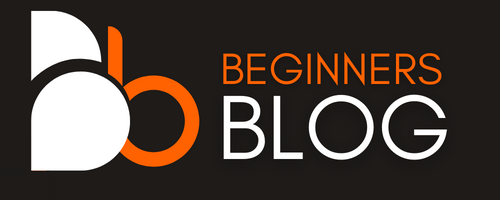Every 39 seconds, there’s a new victim of cybercrime somewhere in the world. In 2023 alone, cyberattacks cost the global economy an estimated $6 trillion, making it more profitable than the entire illegal drug trade. The threat is real, it’s growing, and it’s affecting individuals, businesses, and even entire nations.
Here are a few real-life cybercrimes that cost billions but could potentially have been mitigated or even prevented with the use of simple cybersecurity tools like VPNs and antiviruses:
1. WannaCry Ransomware Attack (2017):
Cost: Estimated at $4 billion in damages globally
Method: Exploited a vulnerability in older Windows systems, encrypting files and demanding ransom in Bitcoin.
Prevention: Keeping systems updated with the latest security patches and using antivirus software could have prevented many infections. Use tools like Bitdefender, Kaspersky, Norton, and Malwarebytes for Real-time protection against viruses, Trojans, ransomware, and other malicious software.
2. NotPetya Ransomware Attack (2017):
Cost: Estimated at over $10 billion in damages globally.
Method: Spread rapidly through networks, encrypting data and disrupting operations.The NotPetya attack paralyzed operations at multinational corporations across a wide swath of critical infrastructure sectors including healthcare, energy, and transportation.
Prevention: Again, regular system updates and strong antivirus software could have helped, along with cautious email practices to avoid opening malicious attachments.
3. Equifax Data Breach (2017):
Cost: Estimated at $1.7 billion in direct costs, with long-term impacts on consumer trust.
Method: Hackers exploited a vulnerability in Equifax’s web application software to steal personal data of millions. It potentially affected 143 million people — more than 40 percent of the population of the United States — whose names, addresses, dates of birth, Social Security numbers, and drivers’ licenses numbers were exposed.
Prevention: While a VPN wouldn’t have directly stopped the breach, it could have limited the exposure of individual users’ data during the attack. Additionally, strong web application security practices by Equifax could have prevented the breach altogether.
4. Man-in-the-Middle Attacks on Public Wi-Fi:
Cost: While individual cases might not reach billions, the cumulative cost of data theft, identity fraud, and financial losses from these attacks is significant.
Method: Hackers intercept data transmitted over unsecured public Wi-Fi networks.
Prevention: Using a VPN on public Wi-Fi encrypts your data, making it much harder for hackers to steal sensitive information.
5. Phishing Attacks Leading to Business Email Compromise (BEC):
Cost: The FBI estimates that BEC scams have cost businesses over $43 billion globally.
Method: Trick users into revealing login credentials or sensitive information through deceptive emails or websites.
Prevention: Security awareness training and anti-phishing tools can help individuals recognize and avoid these scams. Additionally, antivirus software may detect malicious links or attachments associated with phishing attempts.
These are just a few examples, and the list goes on. Cybercrime is a pervasive and ever-evolving threat that affects everyone, from individuals to multinational corporations.
Simple Tools that could potentially Prevent OR mitigate the cost of Cybercrime
The good news is that many of these devastating attacks could have been prevented or mitigated with the use of readily available and affordable cybersecurity tools.
Let’s explore some of these tools and how they can help safeguard your digital life:
1. VPNs (Virtual Private Networks):
- Encrypt your internet traffic, making it unreadable to hackers even on public Wi-Fi.
- Mask your IP address, adding a layer of anonymity and making it harder for malicious actors to track your online activity.
- Could have limited data exposure during breaches like the one at Equifax and prevented many man-in-the-middle attacks.
Recommended VPNs with strong privacy and security features:
- NordVPN: Offers a wide range of servers, strong encryption, and additional features like CyberSec for blocking ads and malware.
- ExpressVPN: Known for its fast speeds, excellent security, and user-friendly interface.
- Surfshark: Offers a wide range of servers at cheapest price point.
2. Antivirus Software:
- Scans your devices for known viruses, malware, and other malicious software.
- Can detect and block many ransomware attacks like WannaCry and NotPetya before they cause damage.
- Essential for all internet-connected devices.
Recommended antivirus software:
- Bitdefender: Consistently scores high in independent tests for malware detection and protection.
- Kaspersky: Offers a comprehensive suite of security features, including ransomware protection and a secure browser.
- Norton 360: Provides a multi-layered approach to security with features like a VPN, password manager, and parental controls.
3. Firewalls:
- Act as a barrier between your network and the internet, blocking unauthorized access.
- Crucial for both individuals and businesses to protect against various cyberattacks.
- Most operating systems have built-in firewalls, but consider advanced options like ZoneAlarm or GlassWire for extra features and control.
4. Password Managers:
- Help you create and store strong, unique passwords for all your online accounts.
- Make it significantly harder for hackers to gain access to your sensitive information through brute-force attacks or credential stuffing.
- Recommended password managers:
5. Two-Factor Authentication (2FA):
- Adds an extra layer of security beyond passwords by requiring a second form of verification, such as a code sent to your phone.
- Makes it much more difficult for hackers to access your accounts even if they have your password.
- Use 2FA apps like Authy or Google Authenticator for added convenience.
These are just a few of the essential tools that can significantly enhance your cybersecurity posture. Remember, no single tool is foolproof, but combining these measures with good digital hygiene practices creates a robust defense against cyber threats.
The time to act is now. Don’t wait for a cyberattack to strike before taking cybersecurity seriously. Here are concrete steps you can take to protect yourself and your business:
Steps you need to take as an Individual
Essential Tools:
- Antivirus/Anti-Malware: Install reputable antivirus software like Bitdefender, Kaspersky, Norton, or Malwarebytes on all your devices. Keep it updated for real-time protection.
- Firewall: Ensure your operating system’s built-in firewall is enabled. If you need more advanced features, consider ZoneAlarm or GlassWire.
- Password Manager: Use a password manager like 1Password, LastPass, or Dashlane to create and store strong, unique passwords for every online account.
- Two-Factor Authentication: Enable 2FA wherever possible. Use authenticator apps like Authy or Google Authenticator for convenience and security.
- VPN: Employ a VPN like NordVPN, ExpressVPN, or Surfshark VPN, especially when using public Wi-Fi, to encrypt your data and protect your privacy.
Additional Practices:
- Be wary of phishing emails and suspicious links: Don’t click on links or open attachments from unknown senders.
- Use strong, unique passwords: Avoid reusing passwords across different accounts.
- Keep your software updated: Install the latest security patches and updates to protect against known vulnerabilities.
- Back up your data regularly: Store backups in a secure location, preferably offline or in the cloud.
- Educate yourself: Stay informed about the latest cyber threats and best practices for online safety.
Steps you need to take as a Business:
Essential Tools and Services
- Antivirus/Anti-Malware and Firewall: Deploy enterprise-grade solutions across all company devices.
- VPN: Consider using a business VPN for secure remote access and data protection.
- Password Manager: Implement a password manager for employees to ensure strong, unique passwords across company accounts.
- Two-Factor Authentication: Enforce 2FA for all employee accounts, especially those with access to sensitive data.
- Endpoint Detection and Response (EDR): Employ EDR solutions to monitor and respond to threats at the device level.
- Cloud Security Solutions: Protect data and applications stored in the cloud with appropriate security measures.
Comprehensive Security Strategy
- Security Policies and Procedures: Develop and enforce clear policies regarding data handling, access control, and incident response.
- Employee Training: Invest in regular security awareness training to educate employees about common threats and best practices.
- Software Updates and Patching: Maintain a rigorous schedule for updating and patching all software and systems.
- Network Security: Implement strong network security measures, including firewalls, intrusion detection systems, and secure Wi-Fi configurations.
- Data Backup and Recovery: Regularly back up critical data and have a plan for disaster recovery.
- Cyber Insurance: Consider cyber insurance to mitigate financial losses in case of a successful attack.
Advanced Measures
- Managed Security Services: Consider outsourcing security functions to a Managed Security Services Provider (MSSP) if you lack in-house expertise.
- Penetration Testing: Regularly conduct penetration tests to identify and address vulnerabilities in your systems.
- Incident Response Plan: Have a well-defined incident response plan in place to minimize damage and downtime in case of a breach.
Conclusion
Remember, cybersecurity is an ongoing battle. New threats are constantly emerging, and it’s essential to stay informed and adapt your security measures accordingly.
By taking action now and adopting a proactive approach to cybersecurity, you can significantly reduce your risk of falling victim to cybercrime and protect your valuable data and privacy. Remember, it’s not a matter of if but when you’ll face a cyber threat. Be prepared, and don’t become another statistic.






